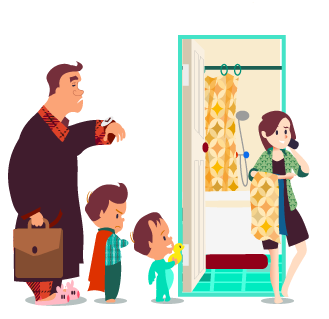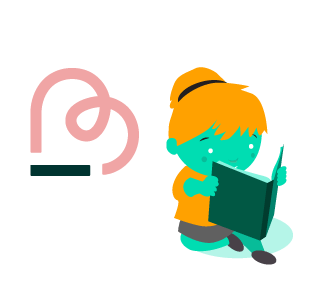Ordinary life has altered completely with the recent unprecedented and enduring pandemic of the Coronavirus, the respiratory disease which began in China at the end of 2019 and spread to the UK in January 2020.
But although all companies of all sizes need to market their services or products, not many of them can afford to spend millions on tv advertising.
“I am not going to sugar coat it in any way. Coronavirus is the biggest challenge of our lifetime.” – First Minister, Nicola Sturgeon
A hit on the economy and normality
The global lockdown has meant that many countries have seen major falls in their industrial production chains.
Life in the UK and all over the world has changed dramatically, as we all become used to living under lockdown.
The chancellor announced the government would meet up to 80% of the salary costs for staff retained by their employers, covering wages of up to £2,500 per month.
There is also an emergency loan scheme (CBILs) of £25,000 up to £5m for business owners, put in place to support threatened businesses during this crisis.
The long term effects
Without doubt we are all going to see big changes in the long-term, the Great Recession of the 00s took years to recover from.
When the economy does begin to climb back from the current crisis, we will see behavioural changes in the way people work and the jobs they are able to do, as well as how we spend our time.
For example, Prime Minister, Boris Johnson declared immediate and unprecedented life-changing measures to fight the growing spread of coronavirus and to protect the NHS from being completely overwhelmed.
Not even during war periods has the UK gone under complete lockdown across the entire country.
In all likelihood, we are experiencing one of the biggest global behaviour changes of our lifetime.

Everything is changing
Society is transforming, in an almost comedically speeded up manner.
Streets are empty and people have been panic buying basics.
Streets and towns are empty as the public begin to realise it’s down to us to control the spread of the virus.
There is definite unease but also an underlying stoicism typical of the British people. Some flout the rules but most do not.
There have been positives about the current situation
Amongst the frightening spread of the coronavirus pandemic and the economic impact, there has been some national morale boosting too.
The ‘Clap for our Carers’ campaign encouraged everyone to come to their front doors, windows and balconies to clap their appreciation for all the NHS workers and saw Royals and celebrities joining in the support across the country.
New huge makeshift hospitals are being erected at incredible speed as we fight to treat and save the growing numbers of coronavirus admissions.
People are being drafted in from all kinds of industries to support the NHS in one way or another.
An astonishing 170,000 people signed up to volunteer for the NHS when asked.
The impact on small to medium businesses
It’s now predicted that a fifth of all small to medium sized businesses will run out of money over the next month, indicating that a further 800,000 firms may have to close across the UK.
With these small to medium sized businesses employing the majority of the UK workforce, that’s 23 million people potentially out of work.
Arguably more important is the fact that when we do come out of this period, there will be millions of companies screaming for every single pound available as they try to recover.
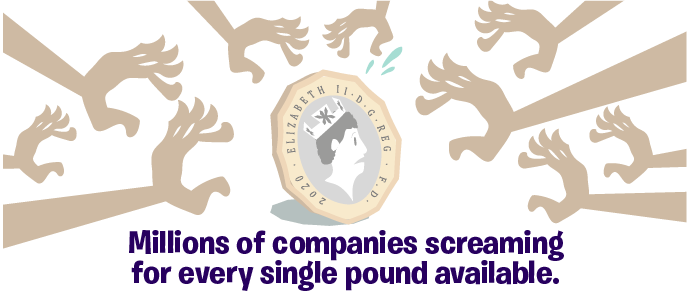
As customers have less money, they will become far more concerned about how far their money will go.
Customers will be more likely to invest in the things and brands they really care about.
In other words, there will be a premium on the value you can provide for the service you can offer.
Those brands that are able to give the most value will dominate.
What does it all mean for us?
It means it’s a time for innovation and foresight.
“The only way to make sense out of change is to plunge into it, move with it, and join the dance’”- Alan Watts
In business terms, it’s a time you can use to sustain your business now and think about adapting for future growth in your new environment..
We need to take this moment to pause.look at our current offerings and work out if there are better, more efficient ways of communicating and delivering value to our customers.
This moment is an opportunity to rethink what we have and work out a better way of doing it.
Short term behaviour changes
We know that right now the majority are feeling anxious about their future so they’re not investing or borrowing.
Cash is king – no one wants to spend or invest when we are headed for a long period of uncertainty, therefore investors and companies are trying to get hold of as much capital and liquidity as possible.
Buying habits are changing as people are stuck at home; there’s less need for that new outfit when all you’re doing is working from home and that new car can wait.
People will be thinking far more about the things they’ve been used to having and whether they need them as much in the future.
The fact that people are living differently means businesses have an opportunity to develop new customer relationships like never before, the tables have been turned.
Use this hugely challenging time in an innovative way to better your business
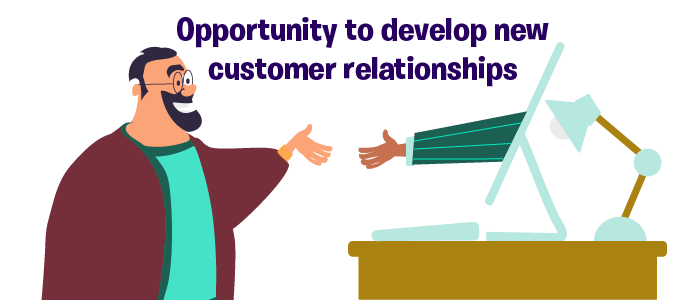
How can marketing help my business now?
Think about what people are doing during lockdown – they’re looking for answers and support, comfort and clarity and they’re looking for this on the internet, on social media and all the digital platforms in which you can and should communicate to them on.
The activity of people’s overall internet searches has reduced since the pandemic hit, while online chat and community activity has soared.
The main search activity searches are for, unsurprisingly, coronavirus related articles and news, with most activity now first thing in the morning and late at night.
But a lot of current set behaviours developed over years are being reformed too.
For example, I used to listen to a lot of podcasts but have switched to audio books as I look to escape listening to news about the coronavirus.
My basic behaviours are changing.
I have bought Airfix models, started a jigsaw, jog every day with my daughter in a pushchair, I listening to new and old music, baked bread, cakes, committed to far more gardening and DIY projects and focused more time playing my guitar.
This is stuff I wouldn’t have time for previously.
I haven’t considered buying any clothes or many other normal items I would normally. I don’t watch so much tv or listen to the radio. We are not thinking of going on holiday anytime soon.
All my normal behaviours are changing, which provides an opportunity for some businesses to tap into that change and start building new relationships which can blossom in the long-term.
How can my business adapt to this?
Consider your customers and how they might be responding to the crisis.
If you have a range of demographics, think accordingly to each of their habits and choices during this time.
Be quick to sympathise, understand and act.
What can you do to make your buyer feel cared for, supported, during this time?
Try to understand how customer behaviour may have altered.
Questions to ask yourself:
- Who is my customer and how are they responding to the crisis?
- Are they working from home or trying to fill their time with other things?
- Is there a demographic split I need to think about?
- How can I improve customer relations?
- How am I going to alter my customer communications?
- What message and actions can we take out to make sure people feel we care and are doing the right thing for everyone (cutting prices / free delivery / longer repayment times)?
- What is the best way to be able to communicate our message?
Learning to communicate more effectively
New business models need to be more flexible and develop their online communications according to the present climate.
Businesses have made mistakes during the epidemic.Sports Direct made a huge blunder by claiming they were providing an essential need to the public and refusing to shut until recently.
The Sports Direct decision over keeping stores open meant they were compromising the health and safety of both the public and the employees.
Naturally the reaction wasn’t good and customers will reflect on this after things stabilise.
Meanwhile Timpsons demonstrated professionalism and consideration by shutting all their 2150 shops and generously giving their staff full pay while they are closed.
Likewise, people will reflect on this
The next normal
Naturally some businesses will be hit harder than others.
We’ve seen many, both large and small, close with no idea when or if they’ll open again.
Some will have crisis management strategies at the ready, most will not
An article written in McKinsey Quarterly said, “our answer is a call to act across five stages, leading from the crisis of today to the next normal that will emerge after the battle against coronavirus has been won: Resolve, Resilience, Return, Reimagination, and Reform.
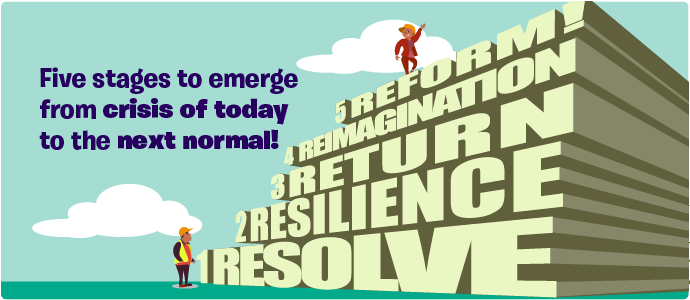
Your online presence is more crucial than ever, and noticing and understanding the changes in online behaviour will govern how well you might be able to deal with this situation
What we can learn from the past
We can learn from previous crises such as the Great Depression during the 1930s in which General Motors acted (like Timpsons) decisively, saving itself by cutting costs, utilising mechanics across its range and expanding its market rapidly into the lower priced cars, ultimately saving the company from ruin and propelling them into success during huge economic difficulty
Chrysler also took this downturn as an opportunity to focus on its efficiency and invested in research and development, looking to the long-term benefits.
Conversely, Ford were indecisive and didn’t move to support or be flexible and made a loss and spent years of recovery as a result.
Rise to the challenge
The point is, it’s important to respond accordingly with intelligence and foresight.
Indeed, research shows that people have been at their most innovative and inventive during these times.
As well as some car manufacturer’s quick-witted responses, there were other great demonstrations of resilience and innovation during the Great Depression; the invention of the electric razor, car radios, tampons, chocolate chip cookies and monopoly were all invented during a time of global economic crisis.
Research shows that the British have historically risen to the challenges of economic crisis, finding ways to be inventive and resilient, with the Great Recession seeing people using their natural innovation to create and inspire.
Dragon’s Den success and first “inventor-in-residence” at London’s Science Museum, Mark Champkins said “This research shows the recession has sparked a real ‘can do’ attitude amongst ordinary people of all ages who are looking to make some extra cash – and it’s amazing to see that, as a nation, we are turning to science and engineering to make the impossible possible”
What will change?
Inevitably the relationship between the customer and business is going to alter. The entire landscape of commerce will change, as it has with other recessions or times of global crises.
It’s important to form a marketing strategy that reflects your understanding of how you’re making life easier or better for your customers and one that shows you’re with them on this journey and are listening to their needs.
After all, without them, you don’t exist.
Building Trust
As spending decreases and people look at what they need and want, brand loyalty and trust is more important than ever.

Once you’ve established a strategy to connect in an open, honest way about the shortfalls that may occur, you can offer something of value in exchange
For example, if your business has had to let go of staff and this means you can’t get the orders out as fast, it’s wise to let people know and give them something of value in return for their patience – what this is depends on your product or service.
The number of people who remain loyal to your brand during these times is a testament to how you deal the present moment and how much value you bring to their lives.
What does this mean for marketers?
For all marketing teams, now is a time to focus on building long-term value.
Communication, honesty and forward-thinking are key to developing strategies that will stand the test of time and keep customers.
For example: People may switch banks as they look for more value in the everyday businesses they interact with. They also might switch to using more local businesses such as coffee shops, bars, cafes and restaurants in the future as they look to support the people local to their community.
The competition will be fierce when the economy levels, so it is even more important to get things right, now
Short-term focus
Communicating with your customers – being honest, sympathetic and demonstrating awareness.
Maintaining a presence online is crucial – look at your SEO positioning and how to increase traffic when times are tight. What are they key things you could do to boost your ranking on search engines.
Reputation management – show you have empathy and do something to show you care.
Watching and managing cashflow – inevitably cash is short so you will need to use innovation in terms of how to spread costs and save money.
Relationships now, profit later – working on the quality of your relationships now will put you at the forefront after the recovery, nurture what you’ve got and see it grow.
Long-term focus
Post-crisis planning – the next normal will need planning for, what do you predict will have changed and how can your business reflect this positively?
Content marketing – critical to your integrity, without good content there’s no sustainability in your repeat traffic. What is going to bring the most value to your customers so they think of you when they come out of lockdown.
Email lists – who are the customers you want to target and how are you communicating with them now? How are you going to communicate with them in the next normal?
Creating value for money – what changes have you made to reflect your customer has suffered financial loss as well? What added value are you going to add to the table?
Relationships now, profit later – look back at what you’ve learnt from working on those relationships and consider how to profit from them.
Coming out of the Covid-19 period on top
When things do go to the next normal there will inevitably be a new pecking order according to who’s managed to keep up with the changing face of the economy and demonstrated how to communicate with their customer in the most transparent and helpful way.
Making sure you are one of the businesses who can succeed during these times is up to you – if you can utilise your best communication and content strategy then you should see things stabilise and grow quickly afterwards
The connections you build now will pay off after the pandemic slows, the trust you create now will be a lasting trust, so it’s worth investing in a good marketing approach now.
That doesn’t mean spending a fortune, it means being clever with the resources you have
Being innovative and sympathetic towards the customer will differentiate you from other brands who have failed at times like this, like Ford in the Great Depression or Sports Direct during the Coronovirus pandemic.
Look to the future
Focus on 2021 where things will lift again and use this time to plan and communicate in the best way you can
Be prepared that things could return to a lockdown situation, so flexibility is paramount.
Ensuring you have a robust value-based marketing strategy in place now, where your online presence and digital communications are spot on will give you lasting results when the economy shifts again.
Nobody knows what the future holds but doing the best we can to manage the situation we are in now is the best approach.
Use the time abiding by the government regulations to stay at home to decide on a better approach to business.
Remember, you can only control what you can, so remain positive and gather your resilience, channel anxiety into planning your strategy and reach for that innovation and strength.
As HRH The Queen said in her rousing address to the nation, “We will meet again.”
